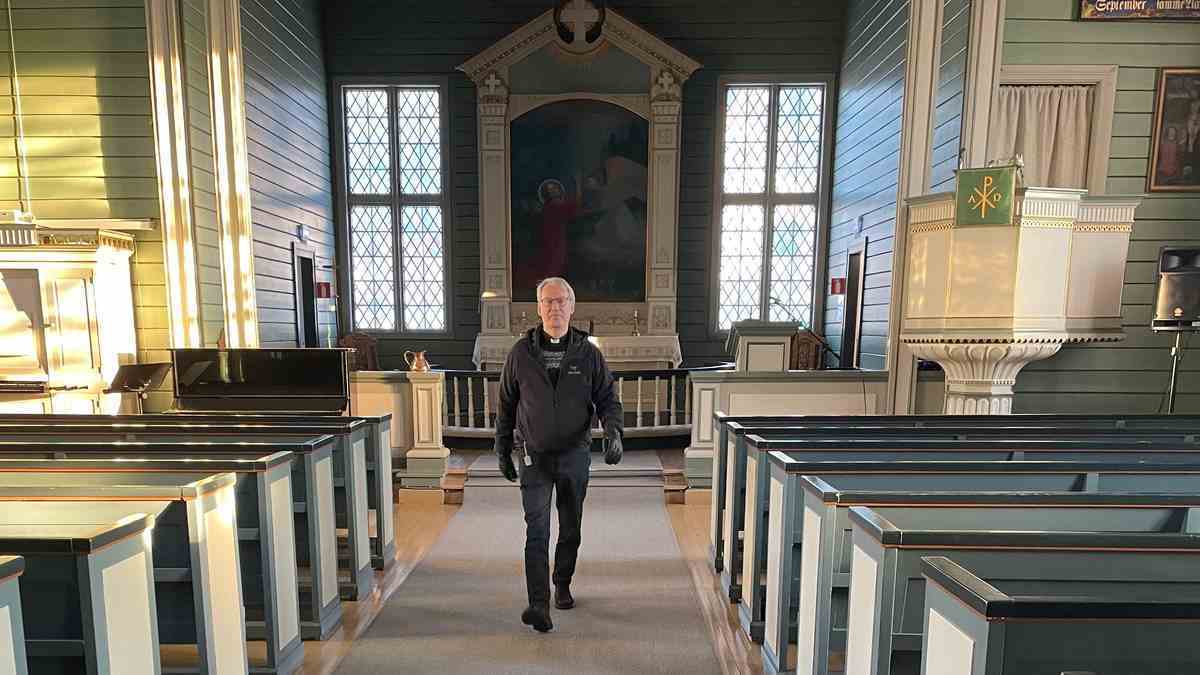– I thought it was a lot, says vicar Espen Gya in Sauda soberly. A few days ago he opened the electricity bill for December. The total was NOK 133,000. The amount includes electricity for Sauda church, three chapels and one office. The church alone had used electricity for NOK 48,000. Gya believes that the church building has not been particularly well heated, but that there were naturally quite a few activities there last month. But nothing would indicate that the use would cost so much. – We are sitting here with a bill we don’t know what to do with, says Gya despairingly. Parish priest Espen Gya in Sauda. Photo: Thomas Halleland / news But the example from Sauda is far from unique, says director Ingrid Vad Nilsen of the Church Council. – This affects us everywhere where there are high electricity prices. We received a grant before Christmas of NOK 30 million from the government, but now the crisis is starting again. Nilsen points out that the churches are an important community arena in the local community. – We know that people’s experiences in the happiest and saddest parts of their lives are connected to buildings. It does not do the same good to go to another church. It’s about people’s health, and being able to say a dignified farewell to the deceased, she says. Tripling in expenses Nilsen estimates that the Church of Norway has had at least a tripling in electricity expenses after the prices started to rise. Although the municipalities are responsible for financing church activity locally, she believes the increased expenditure on electricity shows that extra money is needed. – We were happy with what we got from the government before Christmas. But new arrangements must be put in place that give us more continuity. The ministry must step in. The churches fall between all the chairs of the arrangements that have been established, she says. Church council director Ingrid Vad Nilsen. Photo: The Norwegian Church But the government has no plans to get involved. – It is because it is the municipalities that, according to the Beliefs and Beliefs Act, are responsible for financing the operation of churches, in the same way that the municipalities are responsible for financing public buildings such as schools and nursing homes, says Minister for Children and Families Kjersti Toppe to news. She emphasizes that the support in December was a one-off sum. Stengte churches KA is the employers’ organization for church businesses, and has good insight into the situation. Senior adviser Martin Stærk says that roughly half of the 200 joint councilors KA has been in contact with say that the electricity bill is a big financial burden. – Some have closed churches, many have lowered the operating temperature. Some move activities or cancel church services, or they do not hire in vacant positions. Some have to use funds and equity to pay, he says. Senior advisor Martin Stærk in KA. Photo: KA KA fears that the electricity bills will lead to long-term consequences for the churches. – We are very, very worried about the local church. We are afraid of a reduction in important free meeting places in a difficult time, says Stærk. Minister Toppe says that it is not good if churches have to close because of high electricity prices. – Church buildings exist to be used and are important to many. I obviously want churches to be as open as possible to their residents. Especially in a time like this. – How important do you think it is that the churches can continue to operate as they usually do and as people expect? – That there is some adjustment in operation is probably understandable. But I understand well that people can react if they are not allowed to bury their loved ones in the church they belong to. I hope that someone here shows consideration and does what they can to achieve good solutions that take care of the residents’ needs and wishes, says Toppe. Minister for Children and Families Kjersti Toppe (Sp). Photo: Tom Balgaard Have to spend money in funds In Sauda, they have not yet made any concrete plan for how the bill of 133,000 will be paid. The “Christmas grant” from the government amounts to 43,000 for their part, but it does not go very far. Vicar Gya says they have money in a fund that can be used, but this is money that has been given to the church for other purposes. And it will be completely wrong to take away those funds, Gya believes. – It cuts the wings of the work that the church carries out. It is not right that we should take away a buffer that should actually be used for other things.
ttn-69
The parish council in Sauda received an electricity bill of NOK 133,000 – news Rogaland – Local news, TV and radio

